Health
Millions of Afghan children inoculated against measles, polio in nationwide campaign
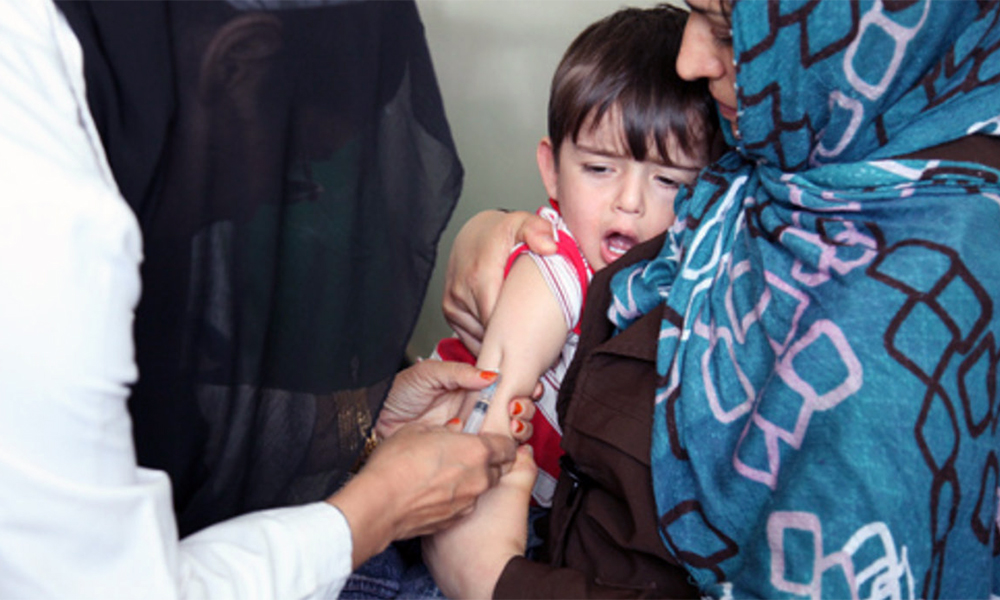
Millions of Afghan children have been vaccinated during the first nationwide integrated measles and polio campaign in Afghanistan since the Islamic Emirate of Afghanistan (IEA) came to power in August 2021, the World Health Organization (WHO) said Thursday.
Afghanistan has vaccinated 5.36 million nine- to 59-month old children against measles while 6.1 million infants to 59-month-olds received oral polio vaccine during the vaccination drive held from 26 November to 12 December.
Based on the data from Afghanistan’s Ministry of Public Health Expanded Programme on Immunization, the campaign covered 329 districts in all 34 provinces of the country – with 4,341 vaccination teams of four members on each team.
“It warms my heart that we were able to protect Afghan children from measles and polio as we enter the harsh winter season in the country”, said Luo Dapeng, the World Health Organization Representative in Afghanistan.
“I thank all the health workers, partners and donors who made this possible”.
Measles is a dangerous disease, with complications that can include severe diarrhea and dehydration; pneumonia, ear and eye complications; encephalitis or swelling of the brain; and death.
This year, many outbreaks were reported in Afghanistan, mostly among children under age five.
There is no specific treatment for measles and the only reliable protection from measles is vaccination.
“While measles is highly contagious, it is also a preventable disease”, said Dapeng. “We must not lose the decades of progress we have achieved in immunizing and protecting Afghan children”.
As of November, 5,484 cases were confirmed, with approximately 300 deaths attributed to measles infection.
Prior to the nationwide drive, a series of subnational measles immunization campaigns were conducted in 141 districts covering approximately three million children.
“The measles vaccine is safe and has been in use for more than 50 years”, the senior WHO official said.
“The benefits of vaccination are clear, as evidence shows measles vaccination saved over 23 million lives worldwide over the past 20-year period”.
WHO and the UN Children’s Fund (UNICEF) supported the measles campaign in Afghanistan with vaccine procurement and delivery and the development of immunization guidelines and communication materials.
The UN agencies also helped to build the capacity of health workers to manage and implement the drive and ensure that all eligible children are protected through safe and effective vaccines for measles and polio, WHO reported.
Health
Health minister meets with Qatari envoy over building of 400-bed hospital in Kandahar

The Ministry of Public Health has announced that Noor Jalal Jalali, the acting public health minister, met with Murdif Al-Qashouti, the Chargé d’Affaires of the Qatari Embassy in Kabul, to discuss the construction of a planned 400-bed hospital by Qatar, the provision of equipment for hospitals, and the enhancement of the capacity of health workers in Kandahar province.
According to a statement, the Acting Minister of Public Health emphasized the importance of improving the capacity of health workers and equipping hospitals with standard facilities to better address patients’ needs and provide essential health services. He considers Qatar’s cooperation to be crucial.
In this meeting, Al-Qashouti assured the IEA of Qatar’s commitment to supporting various health sectors in Afghanistan.
In November 2023, the Ministry of Public Health had announced that Qatar planned to build a 400-bed hospital in Kandahar. In September 2023, reports also emerged about Qatar Charity’s commitment to constructing this hospital.
However, Qatar has not yet started the actual construction of the hospital.
International organizations have repeatedly warned that attention must be given to Afghanistan’s health system, as the country cannot effectively manage patients and combat infectious diseases such as polio and tuberculosis without the support of global organizations.
Health
Majority of WHO-supported facilities in Afghanistan risk shutdown by June
As of 4 March 2025, 167 health facilities had shut down due to funding shortages, cutting off lifesaving medical care to 1.6 million people
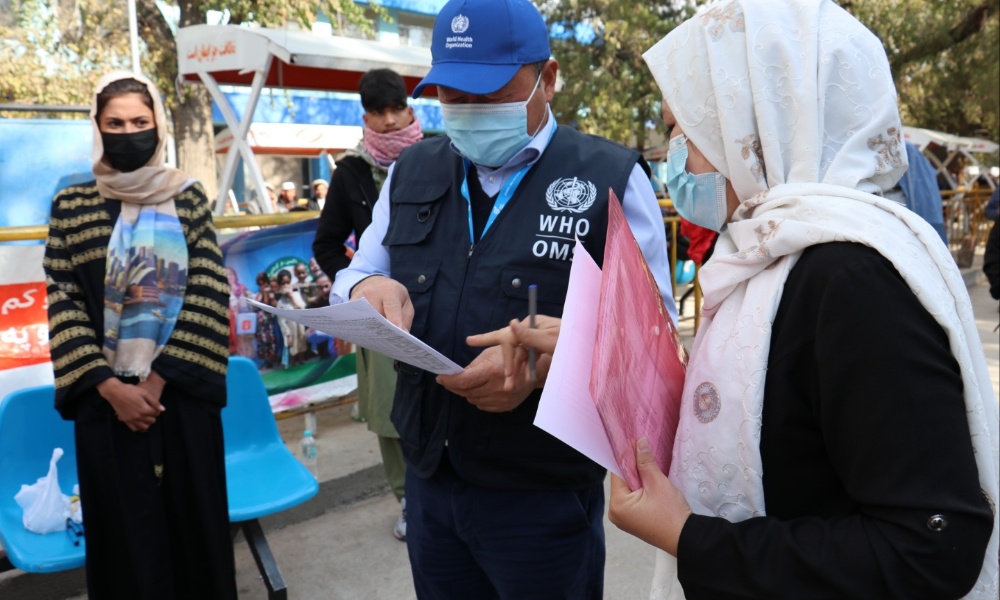
The World Health Organization (WHO) in Afghanistan is deeply concerned that funding shortages could force the closure of 80 percent of WHO-supported essential health care services across the country.
Millions of people, including vulnerable populations such as women, children, the elderly, the displaced and returnees, will be left without access to critical medical care, the organization said in a statement.
As of 4 March 2025, 167 health facilities had shut down due to funding shortages, cutting off lifesaving medical care to 1.6 million people across 25 provinces.
WHO warned that without urgent intervention, another 220 facilities could close by June 2025, leaving an additional 1.8 million Afghans without access to primary health care.
In the worst affected regions – Northern, Western and Northeastern Afghanistan – more than a third of health care centres have shut down, raising alarms about an imminent humanitarian crisis.
“These closures are not just numbers on a report, they represent mothers unable to give birth safely, children missing lifesaving vaccinations, entire communities left without protection from deadly disease outbreaks,” said WHO Representative and Head of Mission in Afghanistan Dr Edwin Ceniza Salvador.
“The consequences will be measured in lives lost.”
Afghanistan is already battling multiple health emergencies, including outbreaks of measles, malaria, dengue, polio and Crimean-Congo haemorrhagic fever.
Without functioning health facilities, efforts to control these diseases are severely hindered. Over 16 000 suspected measles cases, including 111 deaths, were reported in the first two months of 2025. With immunization rates at critically low levels (only 51% for the first dose of the measles vaccine and 37% for the second), children are at heightened risk of preventable illness and death.
While some donors continue to support Afghanistan’s health sector, funding has been significantly reduced as development aid priorities have shifted. The needs, however, remain immense, and current support is not enough to sustain critical health care services for millions of Afghans, WHO stated.
“This is not just about funding. It is a humanitarian emergency that threatens to undo years of progress in strengthening Afghanistan’s health system,” said Salvador.
“Every day that passes without our collective support brings more suffering, more preventable deaths and lasting damage to the country’s health care infrastructure.”
Health
Saudi Arabia confirms $500 million pledge to Afghanistan, Pakistan polio campaign
The WHO said the funds, initially pledged in April 2024, will be disbursed to help end the wild form of polio in Pakistan and Afghanistan and stop outbreaks of variant polio.
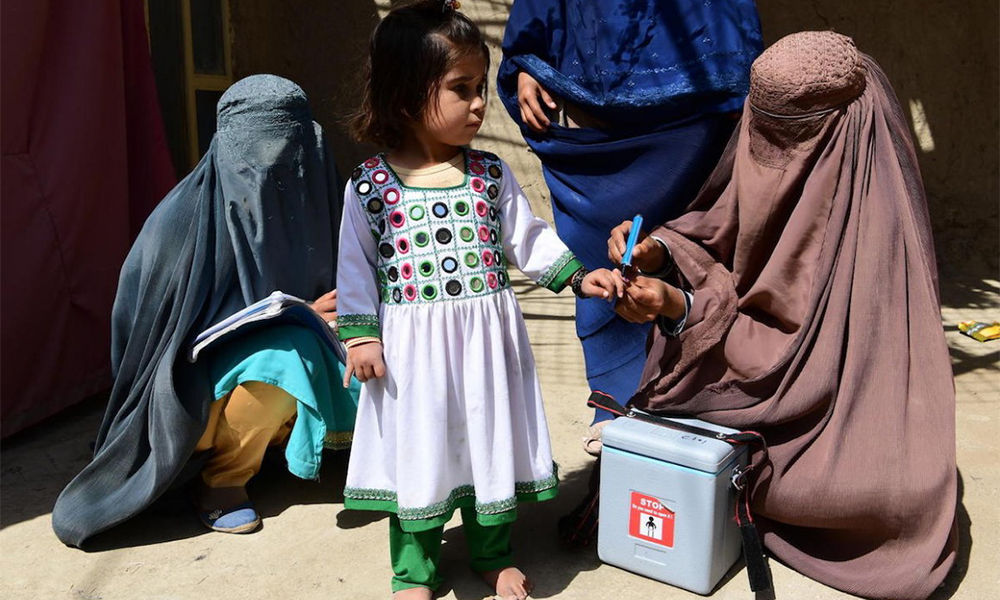
The World Health Organization said Monday Saudi Arabia has reaffirmed its $500 million commitment to the Global Polio Eradication Initiative (GPEI).
The WHO said the funds, initially pledged in April 2024, will be disbursed to help end the wild form of polio in Pakistan and Afghanistan and stop outbreaks of variant polio, Reuters reported.
Wild polio — a naturally occurring form of the viral disease — is endemic in Pakistan and Afghanistan, which together reported 99 cases last year, according to the WHO. Variant polio is caused by the weakening of the oral polio vaccine.
The GPEI hopes to declare an end to the wild virus and the vaccine-derived variant by 2027 and 2029, respectively, compared with a previous deadline of 2026 for both forms.
-

 International Sports5 days ago
International Sports5 days agoIPL 2025: Sunrisers on a batting rampage; triumph over Rajasthan Royals
-

 Latest News5 days ago
Latest News5 days agoEU says girls’ education crucial for Afghanistan’s long-term prosperity
-

 Sport5 days ago
Sport5 days agoACB names Afghanistan A squad for tri-nation series
-
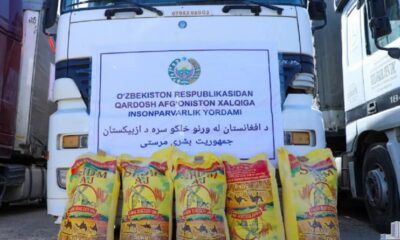
 Latest News5 days ago
Latest News5 days agoUzbekistan sends essential food aid to Afghanistan
-

 International Sports4 days ago
International Sports4 days agoIPL 2025: Last over drama; Ashutosh Sharma clinches win for Delhi Capitals
-
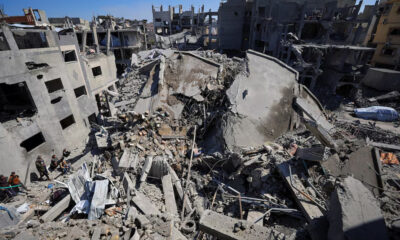
 Regional4 days ago
Regional4 days agoEgypt makes new proposal to restore Gaza truce as Israeli strikes kill 65
-

 Sport4 days ago
Sport4 days agoAfghanistan eliminated from Asian Beach Soccer Championship
-
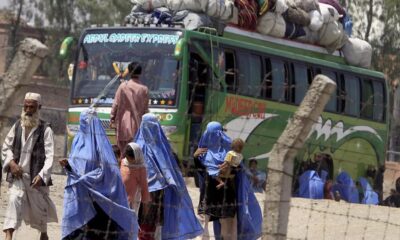
 Latest News5 days ago
Latest News5 days agoAfghans in Pakistan appeal to PM Shehbaz to stop deportations
























